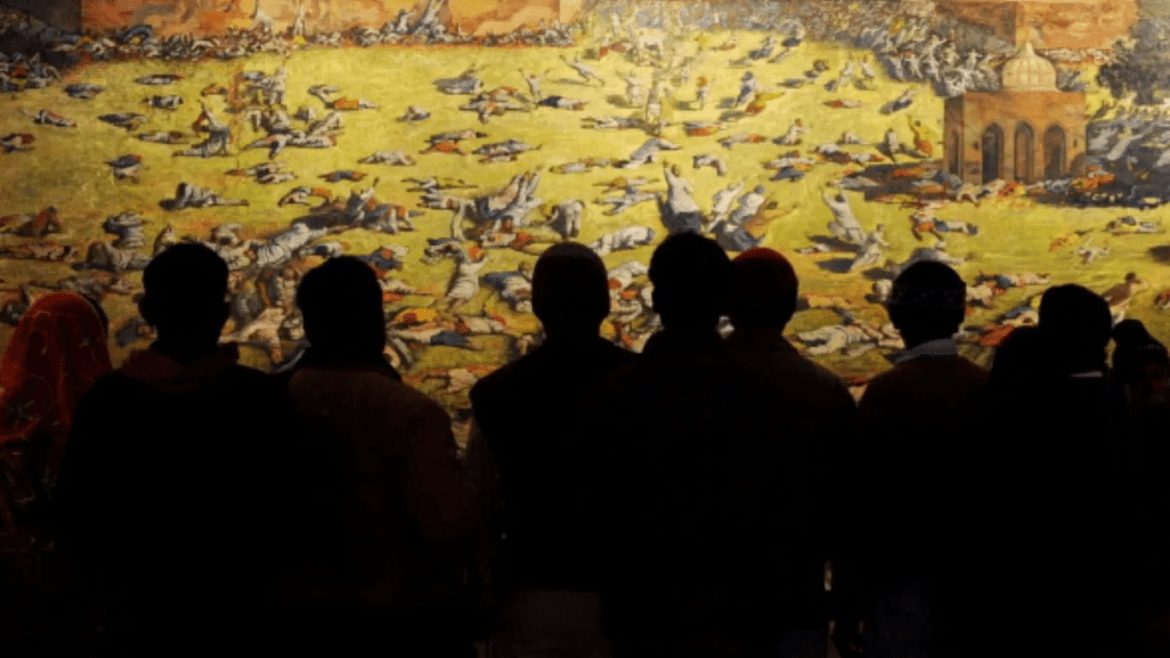AI Generated Summary
- The massacre took place in the garden of Jallianwala Bagh in Amritsar, Punjab, and shook the entire nation, leaving an indelible mark on India’s history.
- Rajendra Prasad, on April 13, 1961, the memorial now stands as a testament to the sacrifices made by countless Indians in the pursuit of freedom.
- In response to the arrest of Saifuddin Kitchlew and Satyapal, a crowd gathered in Jallianwala Bagh on April 13 to protest.
On this day, April 13, 2023, we commemorate the 104th anniversary of the Jallianwala Bagh massacre, a dark and bloody chapter in India’s struggle for independence. It was on the Baisakhi day of April 13, 1919, when hundreds of innocent Indians were brutally killed by the British Army under the command of Colonel Reginald Edward Harry Dyer. The massacre took place in the garden of Jallianwala Bagh in Amritsar, Punjab, and shook the entire nation, leaving an indelible mark on India’s history.
The Rowlatt Act, enacted by the British Government of India in March 1919, was intended to crush the emerging national movement in India. The law, based on the recommendations of the Sedition Committee headed by Sir Sydney Rowlett, granted the British government the power to imprison any Indian without trial. Protests erupted across the country, with Mahatma Gandhi calling for a nationwide strike. In response to the arrest of Saifuddin Kitchlew and Satyapal, a crowd gathered in Jallianwala Bagh on April 13 to protest.
Despite a citywide curfew, hundreds of people visited the garden to attend the meeting and celebrate Baisakhi, a major Sikh festival. Dyer and his troops surrounded the garden and opened fire on the unarmed civilians without any warning. In just 10 minutes, they fired 1,650 rounds, killing at least 379 people and injuring 200 others. Trapped with no escape route, many jumped into a well within the garden, only to suffocate under the weight of the dead.
The massacre had far-reaching consequences for the Indian independence movement. As news of the atrocity spread like wildfire, a newfound sense of unity and patriotism emerged across the country. The desire for freedom began to burn even more fiercely, and the incident brought Punjab closer to the national struggle for independence.
The massacre also inspired notable figures like Rabindranath Tagore, who renounced his knighthood in protest, and Bhagat Singh, a 12-year-old boy deeply affected by the incident. Udham Singh, who was present at Jallianwala Bagh during the massacre, would later assassinate Dyer in London on March 13, 1940, in an act of vengeance.
In memory of those who lost their lives, a memorial was built at Jallianwala Bagh. Inaugurated by the then President of India, Dr. Rajendra Prasad, on April 13, 1961, the memorial now stands as a testament to the sacrifices made by countless Indians in the pursuit of freedom.
As we remember the Jallianwala Bagh massacre 104 years later, let us pay tribute to those who laid down their lives in the struggle for India’s independence. Their courage and determination paved the way for a free and democratic India, and their legacy will forever be remembered in the annals of history.




